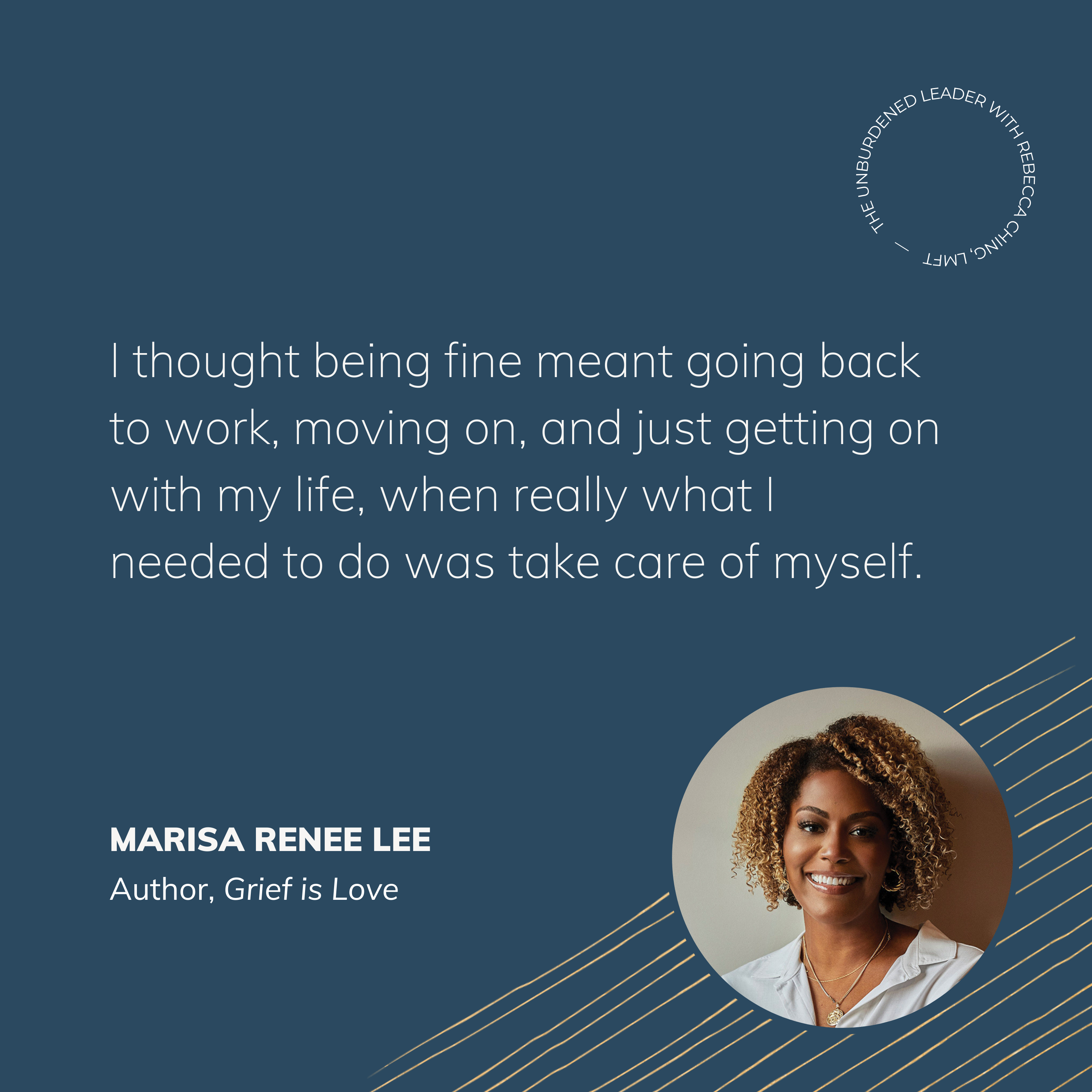If you don’t take time to grieve, your body will make the time for you.
Grief is an emotion that does not respond to intellectual strategies or hacks. It has a job to do and it will take you out if you do not listen to it.
And there are not many spaces that encourage you to take the time to tend to the fullness of your grief.
Work deadlines are still looming. Bills still need to be paid. Family care needs are still all too present.
But when we neglect to approach our grief and the grief of others with the reverence it deserves, we may unintentionally become complicit in toxic narratives around grief while doing harm to ourselves and to others.
And when grief is not tended to, our bodies end up being the truth tellers in ways of: anxiety, insomnia, panic attacks, brain fog, and so much more to get us to pay attention to our grief.
My guest today addresses powerfully what it looks like to normalize grief and what happens when we try to bypass it.
Marisa Renee Lee is a writer, speaker, entrepreneur and grief advocate. She’s the author of Grief is Love; the founder of the social impact consultancy Beacon Advisors; the co-founder of the digital platform Supportal, which offers resources to those going through hardship and loss; and the founder of The Pink Agenda, a national organization dedicated to raising money for breast cancer care, research, and awareness.
Listen to the full episode to hear:
- How Marisa went through anticipatory grief leading up to her mother’s death, and how it couldn’t prepare her for the actual loss
- Why there is no getting over some fundamental losses and why that’s okay
- The mental and physical toll unattended grief took on Marisa in the wake of her mother’s death
- How the emotional vulnerability required to fully grieve is a privilege not everyone has
- Why it’s imperative for leaders to normalize grief and offer tangible support to those experiencing it
Learn more about Marisa Renee Lee:
Learn more about Rebecca:
Resources:







Comments +